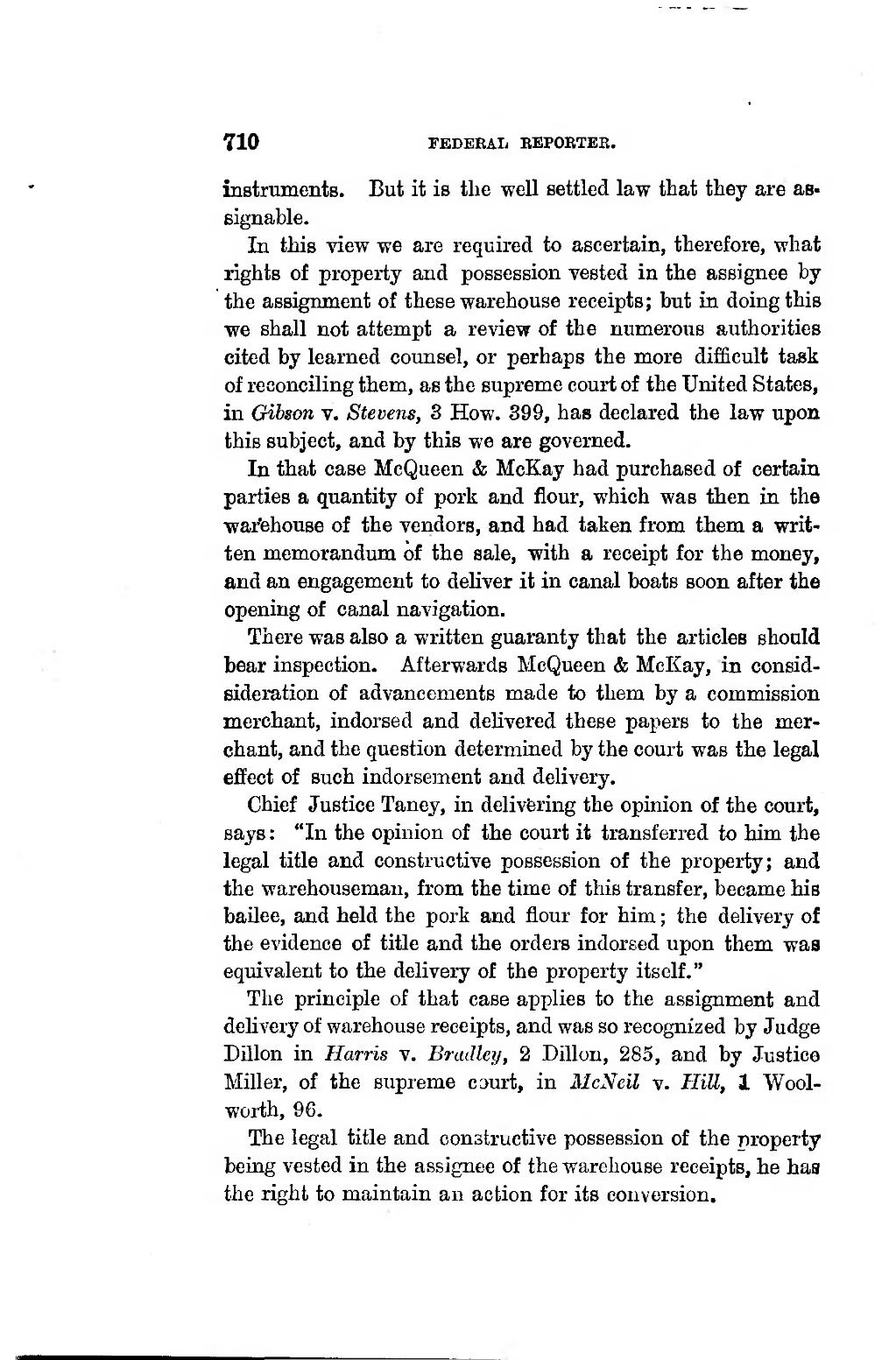instruments. But it is the well settled law that they are assignable.
In this view we are required to ascertain, therefore, what rights of property and possession vested in the assignee by the assignment of these warehouse receipts; but in doing this we shall not attempt a review of the numerous authorities cited by learned counsel, or perhaps the more difficult task of reconciling them, as the supreme court of the United States, in Gibson v. Stevens, 3 How. 399, has declared the law upon this subject, and by this we are governed.
In that case McQueen & McKay had purchased of certain parties a quantity of pork and flour, which was then in the warehouse of the vendors, and had taken from them a written memorandum of the sale, with a receipt for the money, and an engagement to deliver it in canal boats soon after the opening of canal navigation.
There was also a written guaranty that the articles should bear inspection. Afterwards McQueen & McKay, in considsideration of advancements made to them by a commission merchant, indorsed and delivered these papers to the merchant, and the question determined by the court was the legal effect of such indorsement and delivery.
Chief Justice Taney, in delivering the opinion of the court, says: “In the opinion of the court it transferred to him the legal title and constructive possession of the property; and the warehouseman, from the time of this transfer, became his bailee, and held the pork and flour for him; the delivery of the evidence of title and the orders indorsed upon them was equivalent to the delivery of the property itself.”
The principle of that case applies to the assignment and delivery of warehouse receipts, and was so recognized by Judge Dillon in Harris v. Bradley, 2 Dillon, 285, and by Justice Miller, of the supreme court, in McNeil v. Hill, 1 Woolworth, 96.
The legal title and constructive possession of the property being vested in the assignee of the warehouse receipts, he has the right to maintain an action for its conversion.
